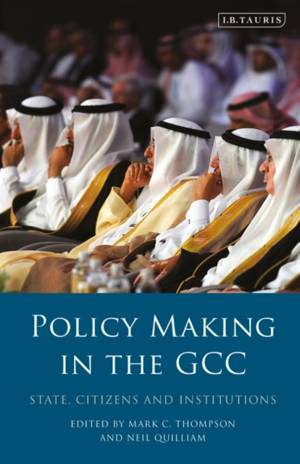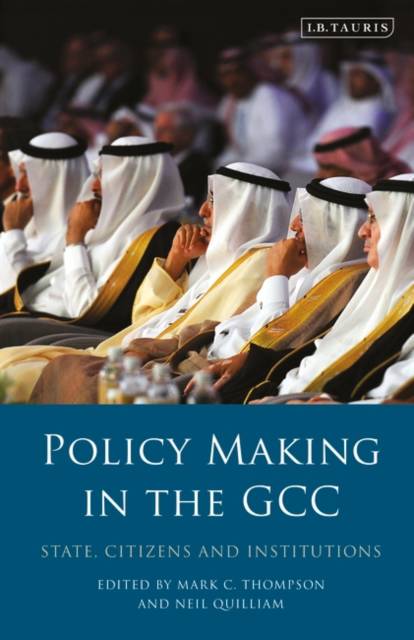
- Retrait gratuit dans votre magasin Club
- 7.000.000 titres dans notre catalogue
- Payer en toute sécurité
- Toujours un magasin près de chez vous
- Retrait gratuit dans votre magasin Club
- 7.000.0000 titres dans notre catalogue
- Payer en toute sécurité
- Toujours un magasin près de chez vous
Policy-Making in the GCC State, Citizens and Institutions
State, Citizens and Institutions
79,95 €
+ 159 points
Description
The GCC is a major player in the post-2011 reordering of the Middle East. Despite the rise in prominence of individual Gulf states - especially Kuwait, Qatar, Saudi Arabia and the United Arab Emirates - and the growth of the GCC as a collective entity, surprisingly little attention has been paid to the actual mechanics of policy-making in the region. This book analyses the vital role that institutions are coming to play in shaping policy in the Gulf Arab states. The research coincides with two key developments that have given institutions new importance in the policy process: the emergence of a new generation of leaders in the Gulf, and the era of low oil prices. Both developments, along with dramatic demographic change, have compelled state and citizens to re-evaluate the nature of the social contract that binds them together. Contributors assess the changing relationship between state and citizen and evaluate the role that formal and informal institutions play in mediating such change and informing policy.The book shows how academic, social and economic institutions are responding to the increasingly complex process of decision-making, where citizens demand better services and further empowerment, and states are obliged to seek wider counsel, although wanting to retain ultimate authority.
With contributions from both academics and practitioners, this book will be highly relevant for researchers and policymakers alike.
With contributions from both academics and practitioners, this book will be highly relevant for researchers and policymakers alike.
Spécifications
Parties prenantes
- Editeur:
Contenu
- Nombre de pages :
- 368
- Langue:
- Anglais
- Collection :
Caractéristiques
- EAN:
- 9781838607029
- Date de parution :
- 31-10-19
- Format:
- Livre broché
- Format numérique:
- Trade paperback (VS)
- Dimensions :
- 140 mm x 216 mm
- Poids :
- 426 g

Les avis
Nous publions uniquement les avis qui respectent les conditions requises. Consultez nos conditions pour les avis.





